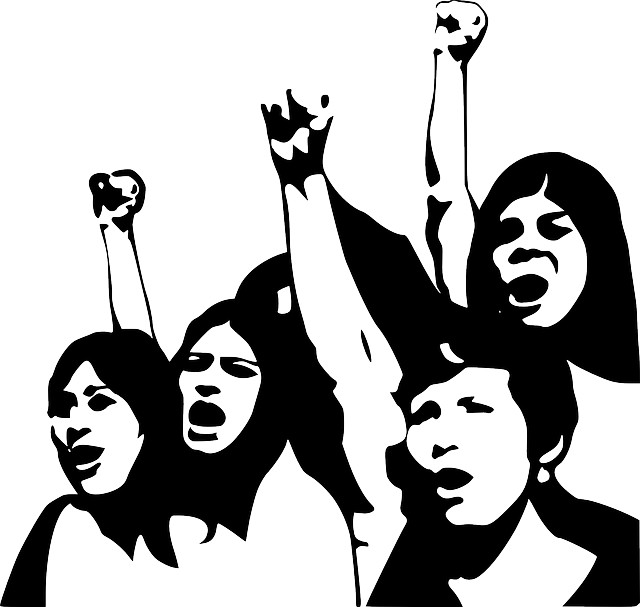Like this article? rabble is reader-supported journalism. Chip in to keep stories like these coming.
After we heard about the budget cuts to the Mount Allison University Women and Gender Studies program, a friend asked me why gender studies mattered. While he was being deliberately hyperbolic — I have been teaching and writing about women’s and gender studies issues for years — it got me thinking.
Why do gender studies still matter in the humanities?
I mean, we know that a focus on gender, not to mention race, class, and sexuality, matter in everyday life. Women — especially women of colour — are more likely to experience physical violence than men. Women are still regularly paid less than men for the same work. The list of reasons why gender studies matter in our social spheres goes on and on and on. Gendered discrimination happens every day. But why do gender studies matter in the humanities? And if it does matter in the humanities, why is funding being cut?
Here is my answer to my friend: gender needs to remain a central focus to humanities education is for the simple reason that the humanities project is fundamentally an unfinished project.
This is what I mean: in their classical iteration the humanities were conceived as enriching human existence. Similarly, in its most basic iteration the Enlightenment cast Humanity in the realm of the possible: if only humans worked hard enough to broaden their minds, strengthen their bodies, and exercise their imaginations, then the possible was infinite.
The concomitant problem with this aspiration was definitional but real: who or what is human? Who makes the decisions regarding access to knowledge production? Who decides what kinds of knowledges are knowledges as such? Find the answer to those questions and you’ve come to the answer of why gender studies matter.
The definition of who and what counts has never been as open within the humanities as could be and thus those of us who fall on the outside of the definition in practice, if not in theory, come from long and varied histories of working outside the dominate sphere of legibility.
Gender studies matters to the humanities because they require us to constantly think about positive transformation for the future, while simultaneously paying close attention to the events and consequences of the past.
Transformation means dramatic change; it also implies that while performing this change, traces of the earlier state will remain. Faint perhaps, but discernable. A future-oriented humanities whose praxis is in the present while working toward the future would deal in both theory and action. In other words, one would hope that future Humanities scholarship would be performatively self-reflexive; it would consider itself and its implications while in the process of enacting social transformation.
Gender studies is one clear place to continue this work. As Judith Butler asks, “how could it be that anything called ‘feminist’ could not in advance have an inherent relationship to social transformation?”
However, Butler goes on to caution that in thinking about the double responsibility of creating theory at the same time as it is put into practice requires having an idea of “whether theory itself is a transformative task or whether it has transformation as one of its effects.” In short, the relationship between thinking and action, between mind and body, must once again be interrogated.
Building on Butler’s statement, I would argue that in thinking towards a future-oriented Humanities the ideologies out of which present-day Humanities emerged need to be examined. Gender studies continue to have a crucial role to play in this on-going humanities project.
As I head into the classroom this fall to teach students about the import of thinking critically about gender I am going to begin with the premise that the humanities are an unfinished project. Not very many of us enjoy being confronted with work we feel should be finished, but, as we will discuss, gender is an ongoing site of violent inequity. Moreover, gender is a site from which we each experience the world viscerally.
When Malala Yousafzi was shot in the head by members of the Taliban; her assailants were attempting to silence her because she was a young women who was determined to go to school, to gain an education, and to advocate for the right of all humans to access knowledges. Malala addressed the United Nations last week. Wrapped in a sari once owned by Benazir Bhutto, she told delegates that knowledge is the most important tool we as humans can access and asked them to fund education on a global scale.
Gender studies matter because the humanities matter — and because that hopeful project is as of yet unfinished. Gender is one place upon which war is waged; the humanities offer the tools for thinking critically through the whys and hows of these wars.
If we continue to study gender in the humanities, then we continue to work towards that promise of the possible in broader, more equitable way — one discussion at a time.
Erin Wunker is Contract Academic Faculty at Dalhousie Univeristy and the Chair of Canadian Women in the Literary Arts (CWILA).
Like this article? rabble is reader-supported journalism. Chip in to keep stories like these coming.



